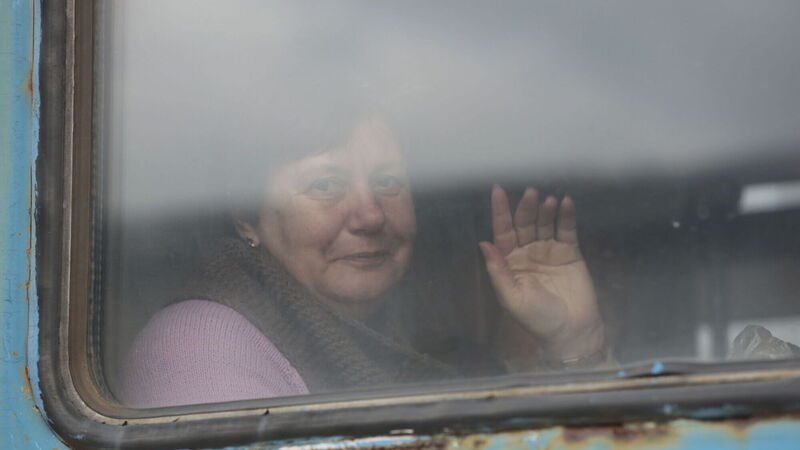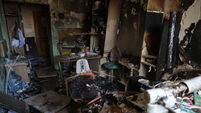Ukrainian President Volodymyr Zelenskyy calls on Vladimir Putin to meet as tensions soar

A woman waves from a train carriage to be evacuated to Russia, at the railway station in Debaltseve, the territory controlled by pro-Russian militants, eastern Ukraine. Picture: AP Photo/Alexei Alexandrov
Ukrainian President Volodymyr Zelenskyy, facing a sharp spike in violence in and around territory held by Russia-backed rebels and increasingly dire warnings that Russia plans to invade, on Saturday called for Russian President Vladimir Putin to meet him and seek resolution to the crisis.
“I don’t know what the president of the Russian Federation wants, so I am proposing a meeting,” Zelenskyy said at the Munich Security Conference, where he also met with U.S. Vice President Kamala Harris. Zelenskyy said Russia could pick the location for the talks.














